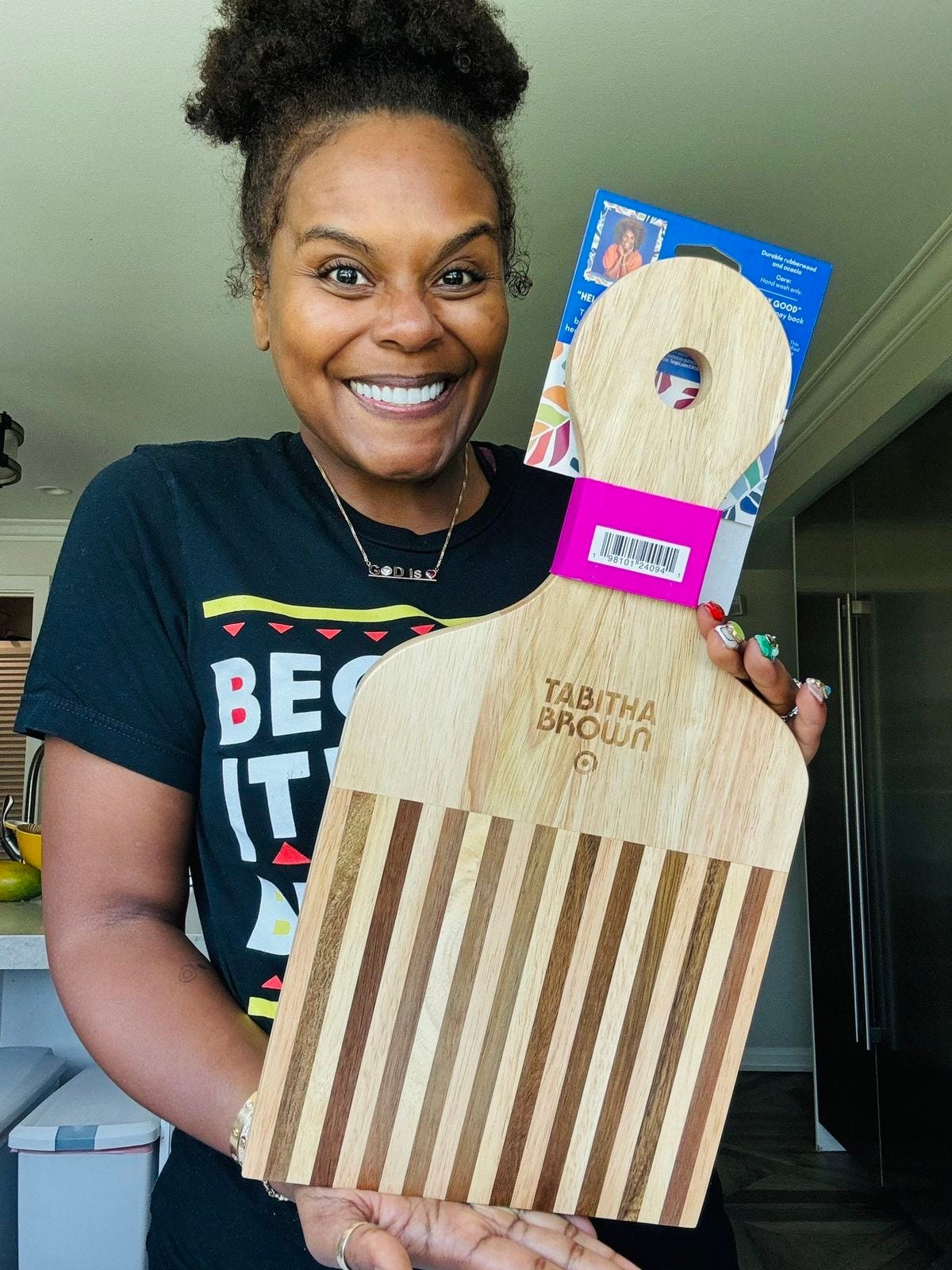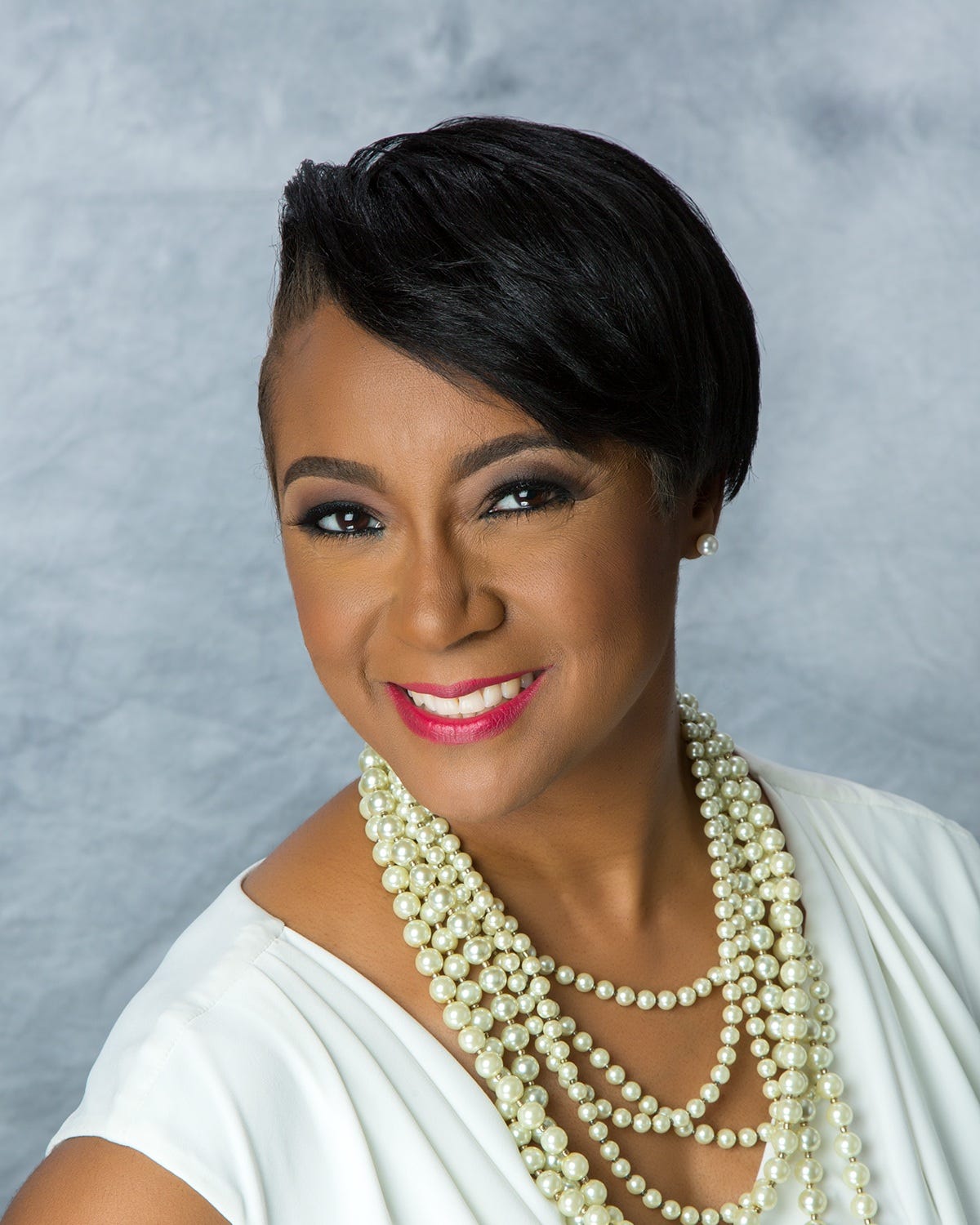
Earlier this week Target announced they were rolling back their DEI program, following in the footsteps of Walmart and Amazon. But this announcement hit differently, especially in the Black community.
Included in their DEI rollback is the elimination of the Supplier Diversity program, which had pledged $2 billion dollars to Black brands, in addition to onboarding 500 Black owned products in their stores this year. Well now they are backtracking on that promise and Black consumers aren’t taking this rollback without some push back.
The internet has been on fire all this week with talks of boycotting the big box store and I get that, we shouldn’t spend our dollars where we are not welcomed. Black consumers are also demanding that the Black brands who are currently on the shelves of Target pull out and go to stores like Costco. And that’s when things started to spiral out of control quickly.
Celebrity influencer Tabitha Brown entered the chat and tried to explain to the masses that ending their partnership with Target and other big box stores isn’t that simple. All of these brands are bound by legal contracts that they are obligated to fulfill. The masses said, “Fuck that…we don’t care about your contracts! Take your products off their shelves NOW!” Unfortunately, unless the contracts of these brands are ending soon with Target, the cost to breach a contract isn’t small change.
In her failed attempt to be heard as she tried to explain the logistics of retail, Black consumers began to verbally attack Brown on the internet. From videos on TikTok calling her ugly and old (ageism), to saying her tone in the video was condescending, and that she was playing in the faces of Black folk, I was like, “Did we watch the same video?” Like you have a right to be mad about what is happening, but let’s direct that anger at Target and all of these other stores, and not the small businesses that are trying to survive.
In this video, I point out the costs that are associated with brands doing business with stores like Target and Walmart, which most consumers are unaware of and how leaving at this point will be economic suicide for most, if not all of them. And let’s not forget, all of this is taking place on the heels of Black History Month - one of the largest selling periods for Black brands, outside of Juneteenth.
I know the collective doesn’t care. They have said as much. I am also aware that many have taken what Tabitha said in her 8 minute video, out of context or they have shaped it to fit their own narrative. Then there are those Black business owners who’s attitude is, “This ain’t got shit to do with me and I’m keeping my mouth shut!” And I say to them, “Unfortunately this does have something to do with you, because one day it’s Tabitha Brown and the next day it could be Y-O-U, especially if you are a Black woman.”
We live in a world where rage bait posts take up more space on the internet than factual based posts. We live in a world where people take everything for face value, vs doing their own research. We live in a world where Black women are the fastest growing number of entrepreneurs, yet we are also the least liked and the least funded. We have to work twice as hard and be three times as good just to get a seat at the boardroom table to pitch our products and services.
Black folk love to talk about our ancestors, but let’s keep it 100…they were organized. A lot of planning went into their boycotts. Our Black leaders had demands and everyone was on the same page. They weren’t just marching and protesting in vain - they had measurable goals and were seeking specific outcomes. This “boycott” has zero organization, no leader(s), no clarity, and no specific asks or tangible outcomes. There is also no solution being proposed on how to protect the small businesses that are currently on the shelves of Target, Walmart, and Amazon and how to keep them from going out of business. Saying they are taking one for the team, or going bankrupt for the collective is not a viable option for business owners who support their families through these sales.
And another thing…stop assuming that just because a brand is on the shelf of a big box store, that the owner is a millionaire. The majority of these business owners are living from invoice to invoice and off of their credit cards.
In the end, these small businesses will suffer the most and for what? Because if my memory serves me correctly, within a week or two, the outrage and rage bait will shift to something else and these brands will be forgotten about because we as a society have short term memories.
Look, I understand wanting to boycott Target, but my question at this point is, “Why has everyone solely focused on Target and not the list of businesses that have also rolled back their DEI programs, and why is everyone only mad at Tabitha Brown and not all of the other Black, Brown, LGBTQ+, Disabled owned, and Veteran brands that are still on the shelves of Target and financially can not afford to just yank their shit off the shelves?”
These are just some points I would like for us to think about as we move forward with our decisions. Is your decision rooted in rage ignited by the internet, or have you done your own homework and you are making an informed decision that is good for everyone involved?
Dr. Carey Yazeed is a Behavioral Scientist and 3 x Bestselling Author.





I appreciate this article. I’ve been boycotting Walmart and Amazon for years. I’ve been trying to remove two of my books from Amazon that I published more than 10 years ago but haven’t figured out how.
When I heard about Target I decided to boycott because DEI is too important. If we truly lived in a merit based society, DEI wouldn’t be necessary.
I listened to Tab’s video and honestly, though I appreciate her reasoning she benefits from staying in Target. What about all the other Black and Brown owned businesses. She mentioned the impact on them, but they are going to feel this the most. Targets roll back is going to have devastating consequences.
I’m a long term consumer of small businesses. I go directly to the business owner, independent bookstore, or a local business that supports businesses of color. If I can’t find a book locally I’ll sometimes go to B&N. If I want Tabs products I’ll go to Ulta, unless they choose to align with racist values.
I know that boycotting for me is a privilege. The Bay Area offers a wide variety of options to support Black owned, plenty of diverse choices.
I believe if Black people alone boycotted these businesses they would go bankrupt. They need us more than we need them. But conditioning and location keeps a lot of people stuck with limited choices.
I love and appreciate Tab, but I disagree with her. She’s an influencer and will likely be alright. It’s a disgrace that she’s being targeted for hateful comments, but unfortunately that’s the society we live in now. It will die down as haters find another focus for their poison.
I’ll continue to boycott big businesses and advocate for small, local businesses, especially Black, Brown, and Women-owned.
I appreciate you for putting your thoughts out there.
It’s a nuanced situation for sure.
Unfortunately, encouraging Black people to spend when they want to boycott is less of a solution than boycotting without strategy.
I don’t envy the situation Black-owned businesses are in however, I think Tabitha would have been better off if she waited and proposed firm solutions for people instead of asking Black people to spend at retailers who don’t respect them.
Our ancestors didn’t do that and neither should we.